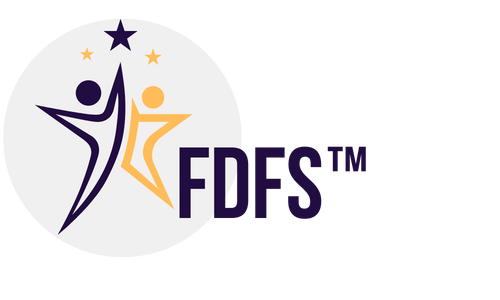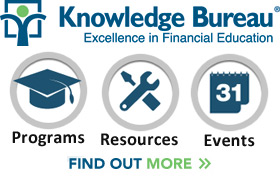
Immediate Expensing Rules: Good Tax Policy?
Over the course of the last two federal budgets (April 16, 2024 and November 4, 2025), the rules for claiming Capital Cost Allowance (CCA) have been uncertain. The proposal to extend immediate expensing rules for certain acquired assets were paused for over a year and then re-introduced in a series of four complex measures which together with new rules for Scientific Research and Experimental Development have become known as the “Productivity Super-Deduction”. A backdrop appears below. The key question: will this complexity be effective as an economic stimulator?Acuity 2024: Announcement of Distinguished Advisor Award Categories
 Knowledge Bureau is delighted to announce the winners of its 2024 Distinguished Advisor Awards at the Acuity Conference for Distinguished Advisors (DAC) November 10 – 12 in Montreal. The star-studded ceremony, being held at the exclusive St. James Club, will kick off the three day educational conference – Canada’s only multi-disciplinary conference, featuring 20 thought leaders who will focus on the theme, Safe Havens: Secure Financial Futures & Wealth Potential. Winners will be honored in the following categories and contacted under separate cover for ceremony details:
Knowledge Bureau is delighted to announce the winners of its 2024 Distinguished Advisor Awards at the Acuity Conference for Distinguished Advisors (DAC) November 10 – 12 in Montreal. The star-studded ceremony, being held at the exclusive St. James Club, will kick off the three day educational conference – Canada’s only multi-disciplinary conference, featuring 20 thought leaders who will focus on the theme, Safe Havens: Secure Financial Futures & Wealth Potential. Winners will be honored in the following categories and contacted under separate cover for ceremony details:
Discuss RWM™ Best Practices | Tax Planning - Embrace it!
 Clients are looking to financial advisors for more tax planning as accountants are inundated with compliance work. The RWM™ is a critical designation that delivers the knowledge you need! Differentiate your practice with new credentials that introduce an integrated approach to growing your business, while building a natural referral network as an RWM™. Join us for a live, virtual discussion with practicing members of the Society of Real Wealth Managers™ August 28 at Noon CT.
Clients are looking to financial advisors for more tax planning as accountants are inundated with compliance work. The RWM™ is a critical designation that delivers the knowledge you need! Differentiate your practice with new credentials that introduce an integrated approach to growing your business, while building a natural referral network as an RWM™. Join us for a live, virtual discussion with practicing members of the Society of Real Wealth Managers™ August 28 at Noon CT.
Average to Awesome: Keys to Building Scalable Practices | Brian Mennis
 The turbulent 2020’s are almost behind us, from a business planning point of view. Building relationships that will amplify results, simply requires a new approach, according to Brian Mennis, author Average to Awesome of Harbourfront Wealth Management who is leading a session on Building Scaleable Practices at the Acuity Conference for Distinguished Advisors (DAC) on November 11. Mentorship of both new advisors and new clients is a challenge; he says, because what people want is just different. The question is: do you have what it takes to thrive and build your business under such an environment? If not, what’s the cure?
The turbulent 2020’s are almost behind us, from a business planning point of view. Building relationships that will amplify results, simply requires a new approach, according to Brian Mennis, author Average to Awesome of Harbourfront Wealth Management who is leading a session on Building Scaleable Practices at the Acuity Conference for Distinguished Advisors (DAC) on November 11. Mentorship of both new advisors and new clients is a challenge; he says, because what people want is just different. The question is: do you have what it takes to thrive and build your business under such an environment? If not, what’s the cure?
Looking to Become a Fellow of Distinguished Financial Services (FDFS™)?
 Would you like to earn the coveted FDFS™ designation? These Distinguished Fellows are honored for their distinguished services as influential thought leaders, who have demonstrated a commitment to the noble cause of teaching and writing by engaging others in the high standards of knowledge they share. In doing so, they have also demonstrated an extraordinary commitment to shaping the future of the tax, accounting and financial services industries. Here’s how you can get involved:
Would you like to earn the coveted FDFS™ designation? These Distinguished Fellows are honored for their distinguished services as influential thought leaders, who have demonstrated a commitment to the noble cause of teaching and writing by engaging others in the high standards of knowledge they share. In doing so, they have also demonstrated an extraordinary commitment to shaping the future of the tax, accounting and financial services industries. Here’s how you can get involved:
CEI - A Bittersweet Tax Break for the Economic Times
 The legislation to implement the Canadian Entrepreneur Incentive (CEI) was released on August 12 and while the provision has been improved from its debut in the April 16 federal budget, its effectiveness in offsetting the negative effects of the capital gains inclusion rate increases when an entrepreneur sells the shares of the company, may still be muted. The reality of the journey to a successful disposition is fraught with risk, as businesses are opening and closing at unprecedented rates. Another major flaw according to the CFIB, is the long list of entrepreneurs in important industries, who are still excluded.
The legislation to implement the Canadian Entrepreneur Incentive (CEI) was released on August 12 and while the provision has been improved from its debut in the April 16 federal budget, its effectiveness in offsetting the negative effects of the capital gains inclusion rate increases when an entrepreneur sells the shares of the company, may still be muted. The reality of the journey to a successful disposition is fraught with risk, as businesses are opening and closing at unprecedented rates. Another major flaw according to the CFIB, is the long list of entrepreneurs in important industries, who are still excluded.
CGIR Rules: Draft Legislation Released
 The technical details for the significant tax changes arising out of the April 16 Federal Budget regarding changes to the Capital Gains Inclusion Rate (CGIR) that took effect on June 25, 2024 were finally released on August 12, absent explanatory notes or even a table of contents, although a Backgrounder issued on June 10. The announcement provides for a brief consultation period with a deadline of September 3. Join us for a technical course on the matter from an audit defence perspective in our virtual CE Savvy Summit on September 18. In the meantime, a perusal of the legislation has identified significant updates throughout the Income Tax Act.
The technical details for the significant tax changes arising out of the April 16 Federal Budget regarding changes to the Capital Gains Inclusion Rate (CGIR) that took effect on June 25, 2024 were finally released on August 12, absent explanatory notes or even a table of contents, although a Backgrounder issued on June 10. The announcement provides for a brief consultation period with a deadline of September 3. Join us for a technical course on the matter from an audit defence perspective in our virtual CE Savvy Summit on September 18. In the meantime, a perusal of the legislation has identified significant updates throughout the Income Tax Act.

